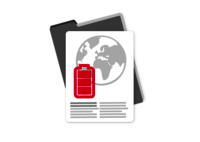As reported by the European Council on 2 February 2024, the Council and the European Parliament reached a provisional agreement on the Directive on the promotion of the repair of damaged or defective goods (also known as the Right to Repair Directive). The agreed legislation will make it easier for consumers to have goods repaired instead of replaced by making access to repair services simpler, faster, transparent and more attractive (take-e-way reported).
The provisional agreement applies to all products subject to repairability requirements under Union law and includes an obligation for manufacturers of such goods to repair them; it also establishes a European Repair Information Form to provide consumers with the most important data relating to the repair service and merges the national repair information platforms into a European online platform.
The directive agreed by the two legislative bodies today will incentivise consumers to extend the life of products by bringing them in for repair. This in turn will strengthen the repair sector, reduce waste and promote more sustainable business models.
To achieve this, the directive proposes a new set of instruments to make repairs more attractive to consumers. These include:
- the possibility for consumers to demand that manufacturers repair products that are technically repairable under EU law (e.g. washing machines, hoovers, bicycles or mobile phones),
- a European Repair Information Form that repairers can provide to consumers, containing clear information such as repair conditions, time to completion, prices, replacement products, etc. (Annex 1 of the Directive contains a model of this form),
- a European online platform for repairs to facilitate mediation between consumers and repairers, and
- an extension of the seller's liability period by 12 months after the repair of a product.
The provisional agreement limits the scope of the Directive to those products for which repairability requirements are laid down in EU legislation (i.e. washing machines, dishwashers, refrigerators or hoovers). In the future, the Commission may introduce reparability requirements for new products through the Ecodesign Regulation, which will then be included in the list of products covered by the Right to Repair Directive (Annex 2).
The agreement obliges manufacturers to provide information about spare parts on their website, make them available to all players in the repair sector at a reasonable price and prohibit practices that prevent the use of used or 3D-printed spare parts by independent repairers.
The agreed text obliges manufacturers to carry out the necessary repairs within a reasonable time and, if the service is not provided free of charge, also at a reasonable price in order to encourage consumers to opt for repair. However, the agreement also preserves consumers' right to choose between repair and replacement of faulty products within the seller's liability period included in the guarantee. If consumers opt for repair, the seller's liability period is extended by 12 months once the product has been brought into conformity. This period can be further extended by the Member States if they wish so.
In order to reduce the administrative burden for repairers (especially small ones), the provision of a European standardised form is optional. However, if repairers present it to consumers, the conditions set out in the form are binding on those repairers. The form must be provided free of charge, although consumers may be asked to bear the cost of the diagnostic service. The basic information contained in the form will be valid for 30 calendar days; however, consumers and the repairer may agree to extend this period.
The agreement reached provides for the creation of a European online repair platform designed and operated at European level instead of 27 national platforms. The purpose of the platform is to make the various repair services available to consumers at EU level, but also across borders and in each Member State. Therefore, there will be sections on the EU platform for each Member State, with the relevant information also coming from national repair platforms, whether public or private. At the same time, national platforms will have the possibility to include information on repair initiatives run by the local population.
Next steps: The provisional agreement reached by the Council and the European Parliament still needs to be endorsed and formally adopted by both sides.
take-e-way is currently working at full speed on a solution to implement the new obligations regarding the right to repair for the affected economic operators in a comprehensive, simple and cost-effective manner: Oliver Friedrichs will be happy to answer any questions you may have at friedrichs@take-e-way.de.
Is the right to repair important to you? trade-e-bility GmbH keeps you up to date with the Legal Monitoring Service. This means you only receive the information that is relevant to you and your product. And we help you with the implementation. If you have any questions, please contact the trade-e-bility consulting team at sales@trade-e-bility.de or +49/40/750687-300.

